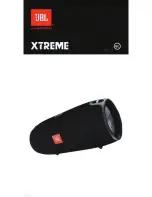
PAGE 8 — DCA400SSI4F/DCA400SSI4F3 60 HZ GENERATOR • OPERATION MANUAL — REV. #3 (04/18/22)
SAFETY INFORMATION
State Health Safety Codes and Public Resources
Codes specify that in certain locations, spark arresters
must be used on internal combustion engines that use
hydrocarbon fuels. A spark arrester is a device designed
to prevent accidental discharge of sparks or fl ames
from the engine exhaust. Spark arresters are qualifi ed
and rated by the United States Forest Service for this
purpose. In order to comply with local laws regarding
spark arresters, consult the engine distributor or the
local Health and Safety Administrator.
FUEL SAFETY
DANGER
NEVER
start the engine near spilled fuel or combustible
fl uids. Diesel fuel is extremely fl ammable and its vapors
can cause an explosion if ignited.
ALWAYS
refuel in a well-ventilated area, away from
sparks and open fl ames.
ALWAYS
use extreme caution when working with
fl ammable
liquids.
NEVER
fill the fuel tank while the engine is
running
or
hot
.
NEVER
overfi ll the fuel tank. Spilled fuel can ignite if it
comes into contact with hot engine parts or sparks from
the ignition system.
Store fuel in appropriate containers, in well-ventilated
areas and away from sparks and fl ames.
NEVER
use fuel as a cleaning agent.
NEVER
smoke around or near the
equipment. Fire or explosion could result
from fuel vapors or if fuel is spilled on a
hot engine.
TOWING SAFETY
CAUTION
Check with your local county or state safety
towing regulations, in addition to meeting
Department of Transportation (DOT)
Safety Towing Regulations
,
before towing
your generator.
Refer to the MQ Power trailer manual for additional safety
information.
In order to reduce the possibility of an accident
while transporting the generator on public roads,
ALWAYS
make sure that the trailer that supports the
generator and the towing vehicle are both mechanically
sound and in good operating condition.
ALWAYS
shut down the engine before transporting.
Make sure the hitch and coupling of the towing
vehicle are rated equal to or greater than the trailer
gross vehicle weight rating
.
ALWAYS
inspect the hitch and coupling for wear.
NEVER
tow a trailer with defective hitches, couplings,
chains, etc.
Check the tire air pressure on both the towing vehicle and
the trailer.
Infl ate trailer tires as indicated on side wall
of tire.
Also check the tire tread wear on both vehicles.
ALWAYS
make sure the trailer is equipped with
safety
chains
.
ALWAYS
properly
attach the trailer’s safety chains to
the towing vehicle.
ALWAYS
make sure the vehicle and trailer directional,
backup, brake, and trailer lights are connected and
working properly.
DOT requirements include the following:
• Connect and test electric brake operation.
• Secure portable power cables in cable tray with
tie wraps.
The maximum speed for highway towing is
55 MPH
unless posted otherwise. Recommended off-road towing
is not to exceed
15 MPH
or less depending on the type
of terrain.
Avoid sudden stops and starts. These can cause skidding
or jackknifi ng. Smooth, gradual starts and stops will
improve towing.
Avoid sharp turns to prevent rolling.
The trailer should be adjusted to a level position at all
times when towing.









































